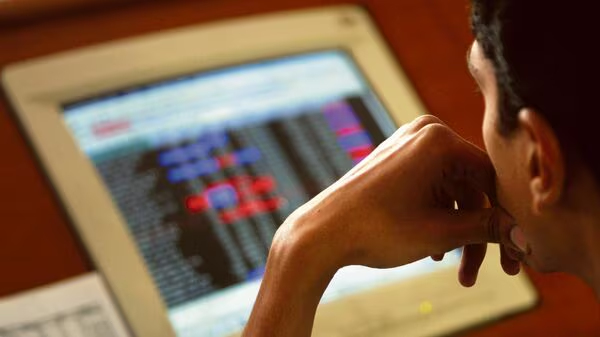Tensions in the Middle East, fueled by the escalating Iran-Israel conflict, have raised concerns over a potential regional crisis. If the situation intensifies, it could have a significant impact on global crude oil prices, as Iran is a major oil producer. While oil prices remain stable for now, a sharp increase could disrupt central banks' rate-cutting strategies, potentially exacerbating inflationary pressures and slowing economic recovery, especially in oil-importing nations like India, which relies on imported oil for 80% of its needs. This could dampen investor sentiment and worsen existing economic challenges.
The Indian stock market is already in correction mode, influenced by a stronger dollar index following Donald Trump’s 2024 presidential win. The ongoing Middle East tensions are further dampening market sentiment, prompting investors to seek safer assets such as bonds and gold.
This week, Indian indices dropped more than 2.5%, marking their second consecutive week of losses. For November, the Nifty50 has declined by 2.7% so far, following a 6.2% loss in October. It is now down over 10% from its record high set in September.
As the Middle East crisis continues, industry leaders are offering insights on how Indian investors can shield their portfolios from potential economic shocks. While the situation presents both risks and opportunities, it’s crucial for investors to understand its broader implications.
Jathin Kaithavalappil, Assistant Vice President at Choice Broking, highlighted the growing market volatility and its potential impact on investor sentiment. "To safeguard portfolios, investors should consider expanding their horizons by including high-quality large-cap stocks and defensive sectors, which are better equipped to weather sudden market corrections," Kaithavalappil advised.
Dr. Ravi Singh, SVP of Retail Research at Religare Broking Ltd., highlighted the risks posed by the ongoing Middle East crisis, including potential spikes in crude oil prices and their effects on inflation and the rupee. "To protect portfolios, diversifying into defensive sectors like IT, healthcare, and FMCG can offer stability during uncertain times," Singh advised. He also recommended adding gold to portfolios as a hedge against geopolitical risks and inflation.
Atul Parakh, CEO of Bigul, emphasized the need for a diversified approach to managing market risks. "Continue rupee-cost averaging with disciplined SIP investments during market corrections, hold energy stocks as a natural hedge, and focus on defensive sectors like FMCG and pharmaceuticals," Parakh recommended. He also stressed the importance of gold as a safe haven, suggesting it should constitute 10 to 15 percent of a portfolio. "India's minimal current account deficit and foreign exchange reserves of $692 billion put us in a strong position to weather external shocks," Parakh noted. However, he cautioned that disruptions in the Strait of Hormuz could push Brent crude prices above $95 per barrel, potentially dampening market sentiment.
Sujit Modi, CIO of Share.Market, highlighted India’s reliance on oil imports and its vulnerability to price fluctuations. "Rising transportation costs could lead to higher inflation, particularly affecting sectors reliant on crude oil," Modi explained.
Trivesh, COO of Tradejini, recommended balancing portfolios with defensive assets and focusing on export-driven stocks to hedge against market volatility. "Indian investors have shown resilience, as reflected in the record SIP inflows in October 2024. The key is to stay prepared for volatility while seizing growth opportunities," Trivesh noted.
Experts emphasize the importance of a proactive approach to manage the potential impacts of the Middle East crisis. Strategies like maintaining disciplined SIPs, investing in defensive sectors, and allocating to safe-haven assets like gold can help protect portfolios against uncertainty. India’s robust foreign exchange reserves and minimal current account deficit provide a strong foundation to weather external shocks, but investors should stay alert as the geopolitical situation evolves.
Disclaimer: The views and recommendations shared above are those of individual analysts or broking firms, not of Mint. We recommend that investors consult certified experts before making any investment decisions.










0 Comments